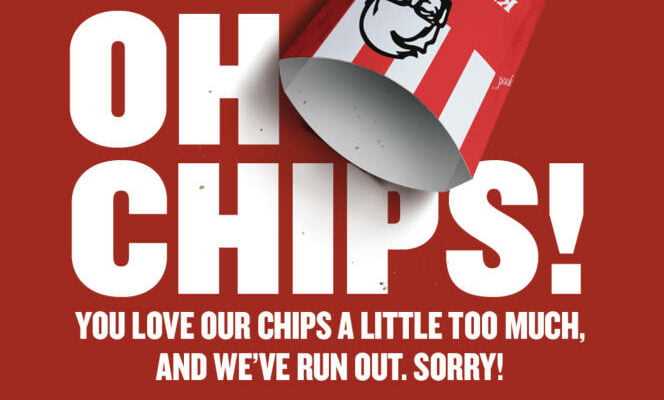To not miss any African news, subscribe to the newsletter of the World Africa from this link. Every Saturday at 6 am, find a week of news and debates treated by the editorial staff of “Monde Afrique”.
The controversy, as often, began with a banal tweet. A message posted on January 3 by the Kenyan branch of the fast food chain Kentucky Fried Chicken (KFC) and which essentially read: “You like our fries a little too much and we’re out of stock. Sorry ! » Do not mention it, a priori, panic the algorithms. Except that the shortage had little to do with Kenyans’ immoderate taste for fries.
KFC’s local franchise boss, Jacques Theunissen, had to admit it: if his restaurants are out of stock, it’s because imports have been complicated by the Covid-19 pandemic. This confession makes the newspaper Business Dailthere which sparked a wave of protest in Kenya, where potato farming is widespread, with the sector alone employing no less than 3.5 million people, according to the agriculture ministry.
Why doesn’t KFC buy from local producers? The question continues to make the rounds of the Web, against a backdrop of calls for a boycott. Since the fast-food chain brings its fries by boat, many Internet users were indignant, KFC has only to import its customers as well! Farmers have also posted photos of their fields and crops on social networks to encourage the brand to call on them.
Certification process
KFC, through its Kenyan franchise Kuku Food, defended itself by explaining that local potatoes do not go through the required quality certification process. An argument that has aggravated the anger of consumers, some interpreting it as a questioning of the quality of Kenyan tubers, while more than sixty varieties are grown in the country.
“KFC’s justification is not to say that the farmers are unable to meet the brand’s standards, but that the requested product is not developed here”, tempers Wachira Kaguongo, director of the National Potato Council. Because it is less the quality of the potatoes that poses a problem than the type of goods imported: according to the rules imposed by the chain, the KFC subsidiaries do not supply themselves with whole potatoes, but with already cut and frozen fries. However, these processed sticks are not available in Kenya. Kuku Food therefore brings them from Egypt.
Taking advantage of the crisis, several competing fast-food brands such as Burger King or Chicken Inn have made it known that they are buying local potatoes. This is also the case for many international restaurants and five-star hotels such as the Radisson Blu, the newspaper pointed out. The National.
Protecting the internal market
KFC ensures, for its part, that its restaurants source 80% locally, in particular for poultry, flour, oil, breads, fresh ingredients and packaging. Faced with the fuss aroused by its tweet, the chain nevertheless reconsidered its import policy by announcing, as of January 4, that it would henceforth supply itself from local farmers whose products stick to its standards. According to the National Potato Council, the company has already spotted at least one variety that might be suitable.
But the controversy revealed a larger problem: that of the lack of protection for Kenyan farmers in a globalized economy. “A 30% customs duty on imported potatoes for making fries was announced in June, but this kind of measure should have been taken ten years ago”, laments Wachira Kaguongo.
The director of cabinet of the ministry of agriculture, Peter Munya, affirmed in the press Monday, January 17 that the government would purely and simply ban the import of Irish potatoes from June, in order to protect the internal market. An unrealistic measure, believes Wachira Kaguongo, since the production chains are lacking to transform the tubers.
Efforts have been made in recent years to supply certified seeds and develop the sector, which contributes 50 billion shillings (about 390 million euros) to the national wealth each year, according to the National Potato Council. The blunder of KFC, present on the Kenyan market since 2011, could paradoxically contribute to accelerating the process.
